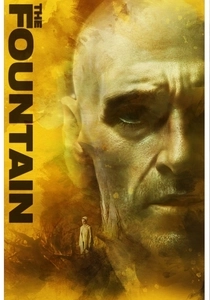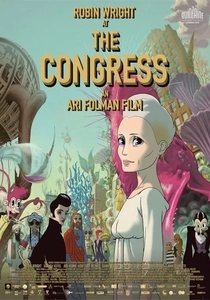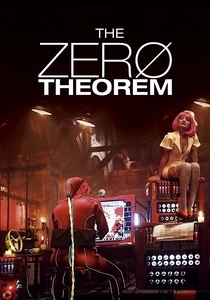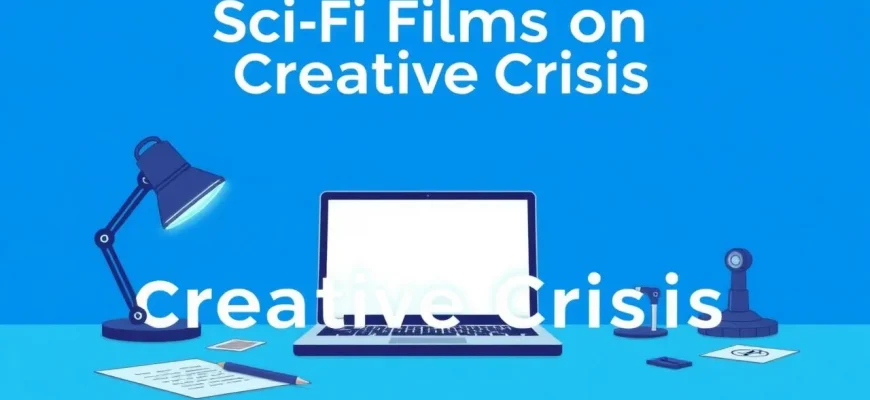In the vast universe of cinema, science fiction often serves as a mirror to our own world, reflecting our deepest fears, hopes, and the very essence of creativity. This curated list of 10 films explores the theme of creative crisis through the lens of science fiction, showcasing how characters navigate through the turmoil of their imagination, innovation, and the quest for inspiration. Whether it's a writer's block in space or an artist's struggle with AI, these films offer a fascinating look at the human condition, wrapped in the allure of futuristic settings and speculative technologies.

The Matrix (1999)
Description: While not directly about creative crisis, the film delves into the nature of reality and the human mind's ability to create and perceive, which can be seen as a metaphor for the creative process.
Fact: The Wachowskis developed the concept for "The Matrix" over several years, drawing inspiration from various philosophical and religious sources.
 Watch Now
Watch Now 
Waking Life (2001)
Description: This animated film follows a young man through a series of dreamlike encounters where he discusses philosophy, art, and the nature of reality, all while grappling with the idea of waking up from his dream state, symbolizing a creative awakening.
Fact: The film was shot in live-action and then rotoscoped, creating a dreamlike visual style. It features numerous real-life philosophers and thinkers.
 Watch Now
Watch Now 
A Scanner Darkly (2006)
Description: Based on Philip K. Dick's novel, this film uses rotoscoping to tell the story of an undercover cop whose identity blurs due to drug use, exploring themes of surveillance, identity, and the creative process of self-discovery.
Fact: The film was shot in live-action and then animated using rotoscoping, similar to "Waking Life." It features a voice-over by Keanu Reeves, who also stars in the film.
 Watch Now
Watch Now 
The Fountain (2006)
Description: Spanning across different timelines, this film explores the quest for immortality and the creative struggle of a scientist to save his dying wife, blending science fiction with spiritual and existential themes.
Fact: The film was originally conceived as a much larger project but was scaled down due to budget constraints. It features three interconnected stories set in different time periods.
 Watch Now
Watch Now 
Ex Machina (2014)
Description: A programmer is invited by his CEO to administer the Turing test to an intelligent humanoid robot, leading to questions about creativity, consciousness, and the human condition.
Fact: The film was shot in a single location, a remote house in Norway, to enhance the feeling of isolation and focus on the characters' interactions.
 Watch Now
Watch Now 
The Imaginarium of Doctor Parnassus (2009)
Description: A fantastical tale of a traveling theater troupe led by Doctor Parnassus, whose magical mirror leads to an imaginative world, reflecting the struggle between creativity and the mundane.
Fact: After Heath Ledger's death, his role was completed by Johnny Depp, Jude Law, and Colin Farrell, each playing different versions of his character in the Imaginarium.
 Watch Now
Watch Now 
The Adjustment Bureau (2011)
Description: A politician discovers that his life is controlled by a mysterious group known as the Adjustment Bureau, which raises questions about free will and the creative control over one's destiny.
Fact: The film is loosely based on a short story by Philip K. Dick. The hats worn by the agents of the Bureau were designed to be reminiscent of the fedoras from the 1940s and 50s.
 Watch Now
Watch Now 
The Congress (2013)
Description: Robin Wright plays a version of herself, an actress facing the end of her career, who agrees to have her digital likeness scanned and used in films, leading to a surreal exploration of identity and creativity in a world where reality and virtuality blur.
Fact: The film is based on the novel "The Futurological Congress" by Stanisław Lem. It blends live-action with animation in a unique way, reflecting the theme of digital identity.
 Watch Now
Watch Now 
The Zero Theorem (2013)
Description: Qohen Leth, a reclusive computer genius, works on a formula to prove the meaninglessness of life, embodying a profound creative and existential crisis.
Fact: The film was directed by Terry Gilliam, known for his unique visual style and dystopian themes. The setting was inspired by the works of Jean-Pierre Jeunet.
 Watch Now
Watch Now 
Strange Days (1995)
Description: In a near-future Los Angeles, a former cop deals in illegal virtual reality experiences, leading to a confrontation with his own past and the creative potential of technology to shape reality.
Fact: The film was directed by Kathryn Bigelow, who later won an Academy Award for "The Hurt Locker." It was one of the first films to explore the concept of virtual reality.
 30 Days Free
30 Days Free 








